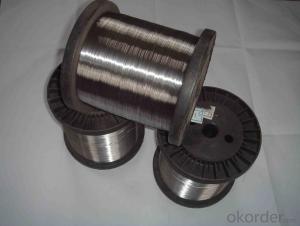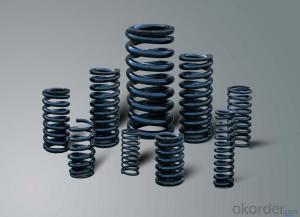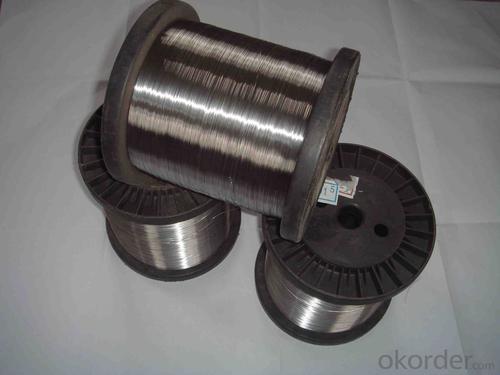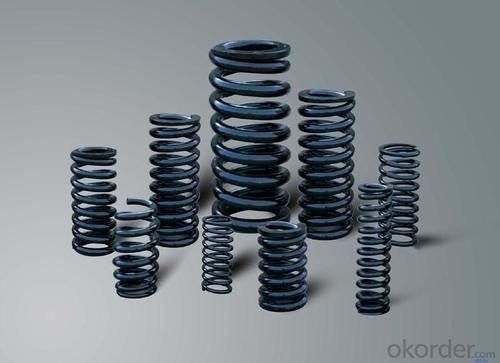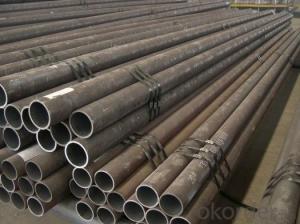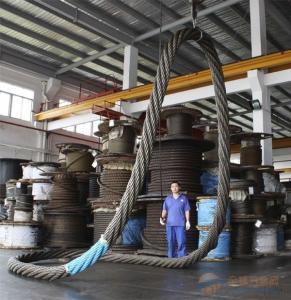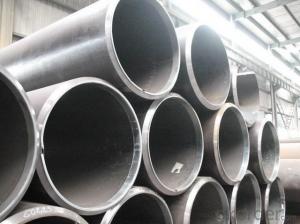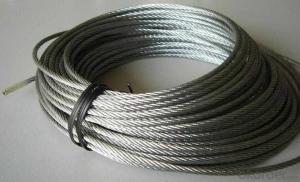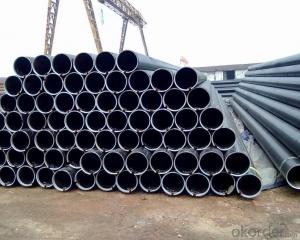302 Stainless Steel Spring Wire Hot Sale and High Quality
- Loading Port:
- Shanghai
- Payment Terms:
- TT OR LC
- Min Order Qty:
- 5000 kg
- Supply Capability:
- 10000 kg/month
OKorder Service Pledge
OKorder Financial Service
You Might Also Like
1.Packing And Delivery
Package: Seaworthy package
MOQ: 0.5 tons
Delivery: 15-20 days
Monthly Output: 100 tons
Payment : 30%T/T in advanced+70% balanced;irrevocable L/C at sight
Remarks: All-risk insurance and accept the third party test
Port : Shanghai
AISI 316 high tensile strength stainless steel spring wire
| Detail as follows: | |
| Standard | AISI,ASTM,GB,SUS etc |
| Grade | 201,202,204,301,303,304,304L,310,316,316L etc |
| Diameter | 0.7mm-14.0mm |
| Surface | Bright or matt |
| Condition | hard |
| Tolerance | +/-0.03mm |
| Length | According to customers’ requirement |
| Packing | Packed by weaved bag or according to customer's requirements |
| Technology | Cold drawn |
| Application | Spring |
| Productivity | 300 tons/month |
| MOQ | 100KG |
| Note | We can produce other standard as the customers' requirement |
1. Competitive price and quality from our own factory
2. Approved by ISO9001, CE, SGS every year
3. Best service with 24 hour`s reply
4. Flexible payment with T/T,L/C , paypal, kunlun bank, western union, etc.
5. Smooth production ability(50000tons/month)
6. Quick delivery and standard exporting package
7. OEM/ODM
- Q: How do steel pipes perform in corrosive environments?
- Steel pipes perform well in corrosive environments due to their inherent resistance to corrosion. Steel is a durable and strong material that can withstand exposure to various corrosive elements such as moisture, chemicals, and saltwater. Additionally, steel pipes can be further protected through coatings or linings to enhance their resistance to corrosion, making them a reliable choice for applications in corrosive environments.
- Q: What are the specific differences between flexible pipes and rigid pipes?
- Watch from outside:The rigid waterproof sleeve is made up of steel bushing and wing ring, and the structure is simple;The flexible waterproof sleeve mainly consists of flange sleeve, sealing ring, flange, pressure plate, wing ring, bolt and nut. The structure is complicated.
- Q: Are steel pipes resistant to UV radiation?
- Yes, steel pipes are generally resistant to UV radiation. UV radiation is known to cause damage to materials over time, such as fading, discoloration, and degradation. However, steel pipes are typically coated with protective layers, such as paint or galvanization, which help to shield them from UV radiation. These coatings act as a barrier, preventing the direct exposure of steel to UV rays and minimizing the potential for damage. Additionally, the inherent properties of steel, including its strength and durability, make it less susceptible to the effects of UV radiation compared to other materials like plastics or rubber. However, it is important to note that prolonged exposure to intense UV radiation can still have some impact on steel pipes, such as slight discoloration or surface degradation. Regular maintenance and inspection are recommended to ensure the continued performance and longevity of steel pipes in outdoor or UV-exposed environments.
- Q: How are steel pipes used in wastewater treatment plants?
- Steel pipes are commonly used in wastewater treatment plants for various purposes such as conveying wastewater, transporting chemicals, and managing water flow. They are used to transport wastewater from different treatment stages, ensuring efficient movement within the plant. Additionally, steel pipes are used to transport chemicals, such as disinfectants or coagulants, which are necessary for treating the wastewater. They also play a crucial role in managing water flow, helping to control the movement and distribution of wastewater throughout the treatment process. Overall, steel pipes are essential components in wastewater treatment plants, facilitating the movement and treatment of wastewater efficiently.
- Q: What are the factors to consider when selecting steel pipes for a specific application?
- When selecting steel pipes for a specific application, there are several factors to consider. The first is the type of steel needed, which can vary based on factors such as the desired strength, corrosion resistance, and temperature resistance. Secondly, the size and dimensions of the pipes should be evaluated to ensure they meet the requirements of the application. Additionally, the specific application's operating conditions, such as pressure, temperature, and environment, should be taken into account. The manufacturing process and quality standards of the steel pipes, as well as the supplier's reputation and reliability, should also be considered. Lastly, cost-effectiveness and budget constraints are essential factors to keep in mind when selecting steel pipes for a specific application.
- Q: Can steel pipes be used for underground fire protection systems?
- Yes, steel pipes can be used for underground fire protection systems. Steel pipes are commonly used for their durability, high tensile strength, and resistance to heat and pressure. They are suitable for carrying water or fire suppression agents underground to protect against fire hazards.
- Q: Can steel pipes be painted?
- Yes, steel pipes can be painted. The process typically involves cleaning and preparing the surface, applying a primer, and then using a suitable paint or coating to achieve the desired finish.
- Q: How are steel pipes inspected for quality?
- Steel pipes are inspected for quality through various methods such as visual inspection, non-destructive testing techniques like ultrasonic testing, magnetic particle inspection, and radiographic testing. These inspections help identify any defects, cracks, or imperfections in the pipes, ensuring they meet the required quality standards. Additionally, mechanical tests such as tensile strength and hardness tests may also be conducted to assess the structural integrity of the steel pipes.
- Q: What are the different surface finishes available for steel pipes?
- Some common surface finishes available for steel pipes include black or bare (uncoated) finish, galvanized finish, and coated finishes such as epoxy, polyethylene, or polypropylene. These finishes provide varying levels of protection against corrosion and can be chosen based on the specific application and environmental conditions.
- Q: Where is the difference between seamless steel pipe and welded pipe?
- In appearance, seamless steel pipe and welded steel pipe difference in the welded pipe wall welded tendons, and seamless No.
Send your message to us
302 Stainless Steel Spring Wire Hot Sale and High Quality
- Loading Port:
- Shanghai
- Payment Terms:
- TT OR LC
- Min Order Qty:
- 5000 kg
- Supply Capability:
- 10000 kg/month
OKorder Service Pledge
OKorder Financial Service
Similar products
Hot products
Hot Searches
Related keywords
